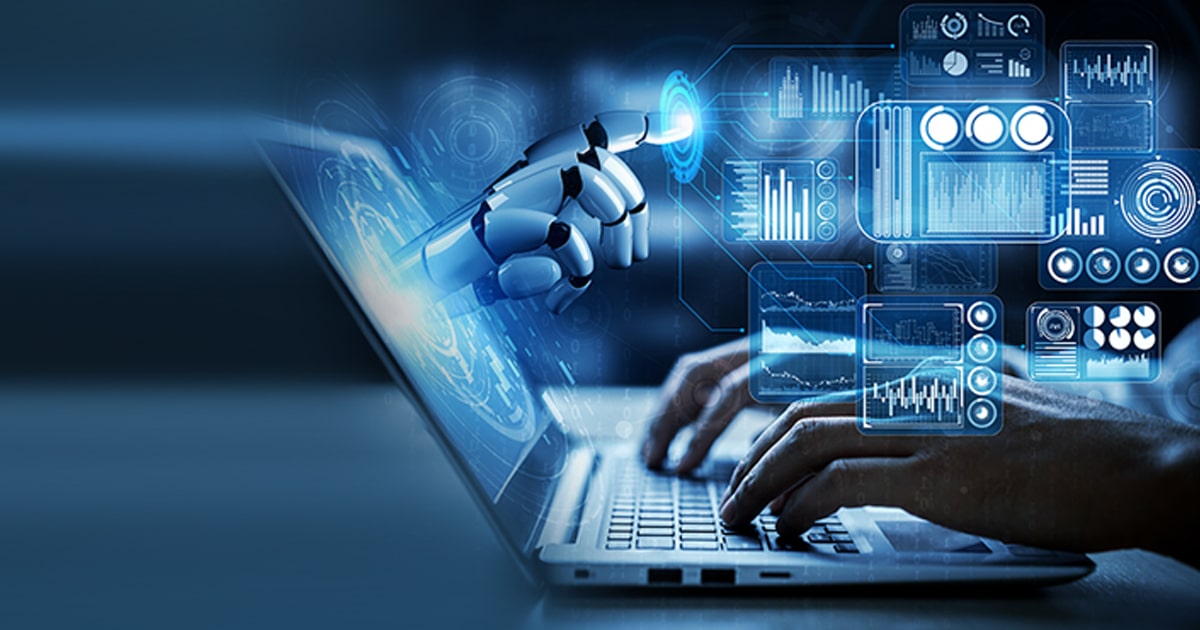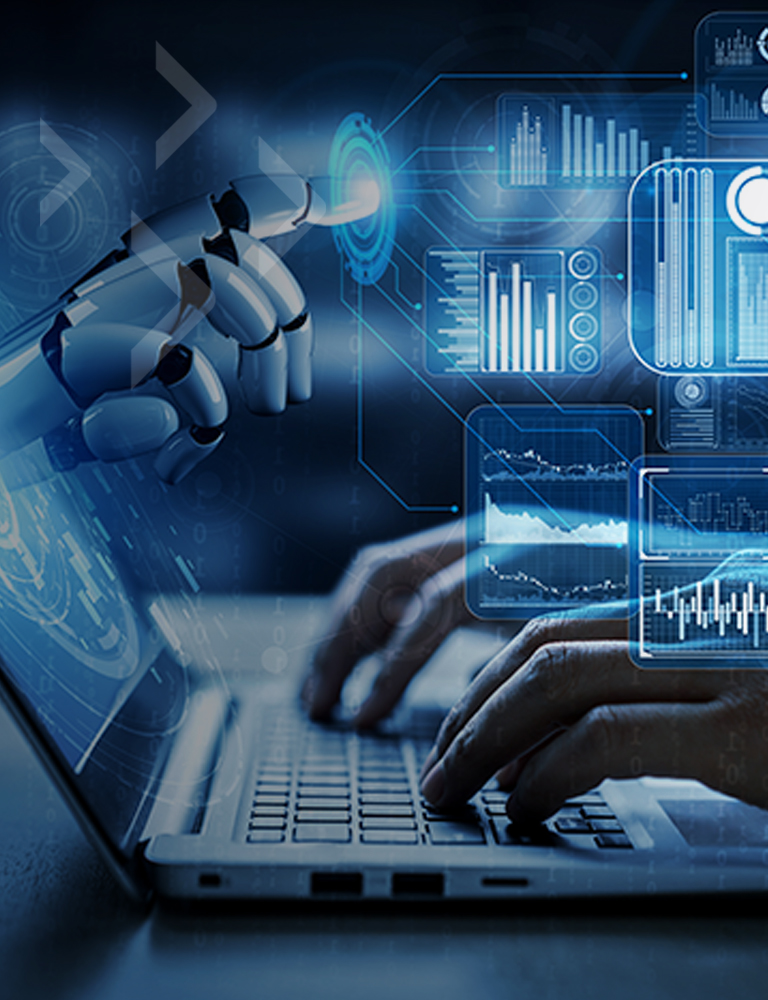Introduction to Artificial Intelligence
Artificial Intelligence refers to the ability of machines to process information and perform functions like those performed by the human mind, such as perceiving, problem-solving and learning. Machine Learning as well as Deep Learning technologies are subsets of Artificial Intelligence, referring to the ability of computers to analyze data and enhance their performance without explicit programmed instructions. This helps automate complex solutions and enhances the skills of the workforce, improving their overall performance. Some common applications of the technology include AI-powered chatbot, AI in e-commerce for automatic tagging and sorting of identifiable products, personal virtual assistants, etc. The technology has evolved across numerous business categories such as: -
-
Advanced Analytics: Machine learning algorithms for predictions & recommendations.
Eg: Predictive modelling, demand forecasting, customer segmentation, cross-selling/upselling, dynamic pricing
-
Natural language processing: Virtual agents for human engagement
Eg. Machine translation, paraphrasing, speech tagging
-
Computer Vision: Enables intelligent and insightful description of the on-screen visual image
Eg. Face detection, object recognition, motion detection
-
Robotic Process Automation: A robot or software collects, interprets, and extracts knowledge for communication and automated processing.
Eg. Manipulating data, trigger responses, communicating with digital systems
-
Speech Recognition: Interpret human speech, convert spoken words into texts and navigate commands.
Eg. Speaker identification, language identification, voice web search
With numerous ai and ml courses available online, learners can enhance their skill set to be future-ready in these emerging domains of technology. With a dedicated platform like FutureSkills Prime, offering industry-aligned courses, validated by SSC nasscom, learners have access to a credible platform and high-quality content for upskilling in Artificial Intelligence technology and earning government-backed certification.
Scope of AI Technology
According to a report co-created by FutureSkills nasscom and Draup, India’s demand for digital talent is currently 8x larger than the available talent pool, which is expected to rise to 20x by 2024. The digital transformation and emerging new technology, therefore, implies that there is a huge opportunity for growth in India.
Artificial Intelligence technology has applications across sectors, such as: -
AI in Agriculture
India is an agrarian economy. Its sectoral contribution to the GDP is expected to grow manifold by leveraging artificial intelligence technology. AI can help improve production planning, predict cases of crop failure and improve yields by precision farming.
AI in Energy
AI can help strike a balance between India’s growing need for energy and its commitment to various environment protection/ climate pacts. Energy demand prediction and management as well as rationalization of asset utilization being the first steps towards the same.
AI in Healthcare
As healthcare is expected to become proactive and not reactive, as a sector it can benefit with timely epidemic outbreak prediction, remote diagnostics and treatment as well as optimized health resource allocation.
AI in Financial Services
AI-based credit underwriting and Financial Risk modelling are made possible with the new technology. This is expected to be a gamechanger for the sector.
AI for MSMEs
Given that a large number of enterprises in India, fall in the small-to-medium-size category, leveraging AI technology will have a direct impact on numerous households associated with these MSMEs. Real-time marketplaces for input materials will help optimize input cost. It will also improve cost competitiveness through yield and energy, enabling overall optimization.
AI for Retail
Leveraging predictive analytics for targeted personalized campaigns. Also, ensure complete product and brand authenticity by protecting against counterfeit products via blockchain-enabled tracking.
Relevant skills for building a career in Artificial Intelligence
According to reports, the pandemic has accelerated the pace of digital transformation initiatives, especially in AI, BDA, Cloud and Cybersecurity. With a credible artificial intelligence online course, like that available on FutureSkills Prime, learners can ace the fundamentals of AI technology and understand how it is changing the industry. Master the basic mathematical and statistical concepts. Learn about databases and programming languages required to arrive at desired outcomes using AI. Get introduced to the core elements of ai course and leverage machine learning, relational databases and algorithms for arriving at data analysis and visualization. Get hands-on practice on popular tools like Python, Relation DB, Pandas and Numpy. The artificial intelligence programs available on FutureSkills Prime are aligned to industry standards and validated by the government.
Learners should know the difference between narrow, general and super AI, relational database models, types of SQL relationships, data acquisition and analysis, as well as, data visualization.
Job Roles
A sound learning in artificial intelligence will enhance your skill set in your current vertical, as well as open avenues across sectors if you are looking for a switch. Most frequent job titles, pertaining to AI, include- research scientists, data analyst, data scientist, data architect, application engineer, data annotation expert, AI expert, ML engineer, business analyst, information security analyst, hardware integration engineer, Al research scientist image & videos; Al research scientist, language-processing; software engineer, testing; software engineer application-platform, solution architect.
Popular Tools
Pandas, Python, Numpy, SQL, Anaconda, SAS, Excel, STATA, HDFS, Spark, PySpark, Tableau, Spotfire, Qlikview, PowerBI, SQL, MongoDB, Hadoop, Apache, MapReduce, SparkR


